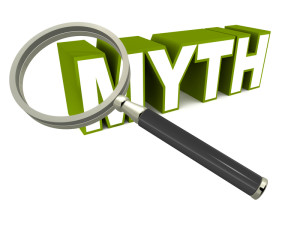 These six beliefs are so pervasive they seem to be embedded in our culture. Most of them are meant to be motivational, but because they aren’t true, belief in these myths can have unintended consequences that harm rather than help. Ultimately, we need less external motivation and more straightforward education about how the brain and the mind actually work. Then we’ll be able to generate our own motivation—from inside.
These six beliefs are so pervasive they seem to be embedded in our culture. Most of them are meant to be motivational, but because they aren’t true, belief in these myths can have unintended consequences that harm rather than help. Ultimately, we need less external motivation and more straightforward education about how the brain and the mind actually work. Then we’ll be able to generate our own motivation—from inside.
Myth #1: We always have a choice.
The reality is that we rarely have a choice. The majority of our thoughts, feelings, and behaviors are the result of automatic brain processes. We operate on autopilot most of the time because that’s how our brain is wired. Contrary to popular belief, there’s not much we can do about that. But that’s neither an excuse nor a reason to give up. What we can do is reprogram some of our automatic behavior so it reflects what’s important to us and what we really want.
Myth #2: Anything is possible.
Sure there are lots of things we have the ability to change. But the reality is that we all have limits and constraints; we all face obstacles; and randomness plays a much greater role in our lives than we’d like to admit. No matter how many hours I put into practicing the violin, for example, if I have no musical talent (and I don’t), I will not be the next Jascha Heifetz or Joshua Bell. However, the more I practice the violin, the better a violinist I will become because although I may not be good, I can always get better.
Myth #3: To live a satisfying life, we need to identify our life purpose or passion.
The reality is that no matter how hard we search, we won’t find our life purpose because we don’t have one. In fact searching for a particular life purpose seems to lead more people to a state of paralyzing anxiety than it does to a sense of satisfaction or fulfillment. Giving up on the life-purpose myth can open the door to living with passion—which means identifying what we really want and then creating a big, juicy, satisfying life on our own terms.
Myth #4: It takes will power to achieve anything significant.
The reality is that will power is an unreliable resource that is easily exhausted. Will power and self-control are unequal to the task of changing habits or behavior or achieving big goals. We don’t need—and can’t get—more will power. What we do need is perseverance. Perseverance is what keeps us steadily moving toward the desired outcome regardless of setbacks or obstacles, adjusting course as we go. I call perseverance magic because it is.
Myth #5: If we focus our attention on the result we want, we’re more likely to get it.
The research has been in on this one for quite a while. The reality is that focusing on the end result (or outcome) of something we want actually decreases the likelihood we will get it. On the other hand, focusing our attention on the process—the individual steps or actions we need to take—increases the likelihood we’ll be successful.
Myth #6: We should always trust our gut.
The reality is that our gut instinct—otherwise known as intuition—is situation-specific and therefore fallible. Our unconscious (System 1) regularly makes suggestions to the conscious part of our brain (System 2). That’s what intuition is. If we know a lot about something or have a lot of experience in a particular area, we can probably rely on those suggestions. But intuition is not magic. In areas where we have no knowledge, skill, or experience, relying on intuition is a mistake. When intuition isn’t based on anything, it’s no better than a wild guess.
Letting go of these myths is one giant step toward creating a more deeply satisfying and meaningful life.




